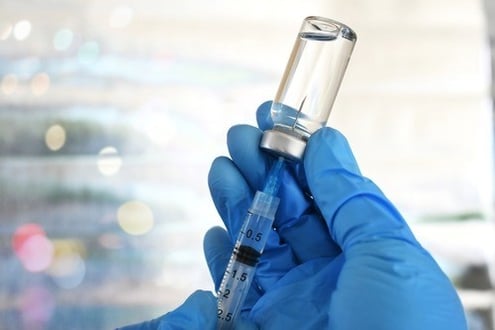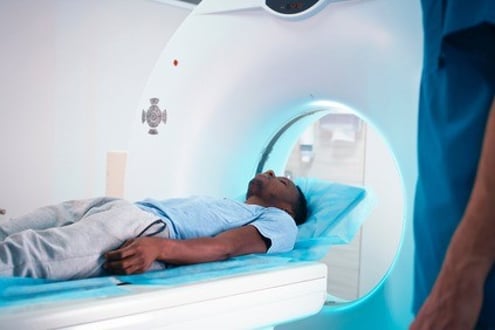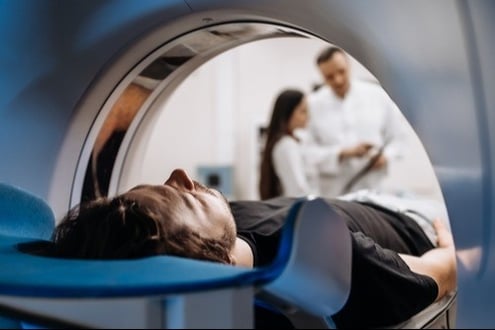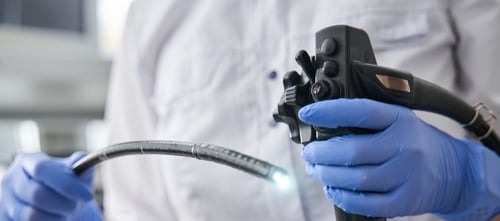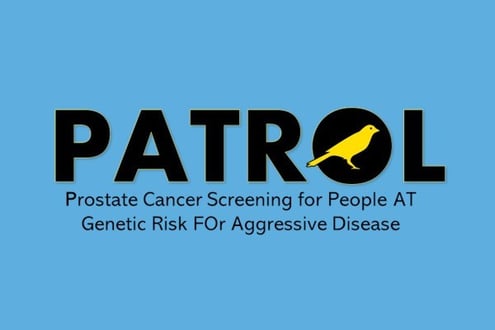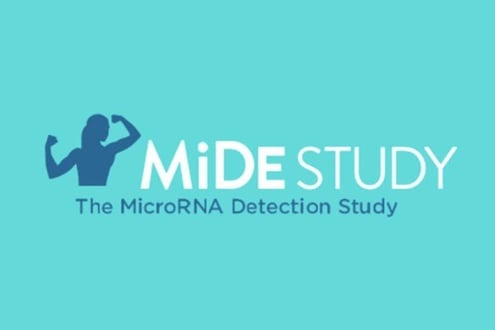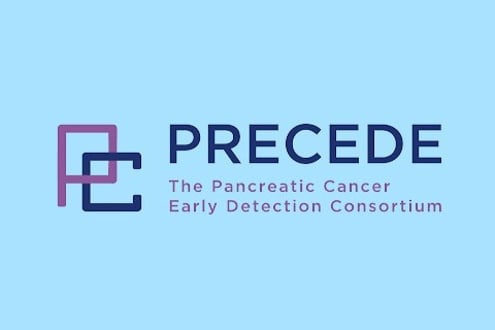BRCA2 Gene Mutations: Cancer Risk
Cancer Risks Associated with Inherited Mutations
People with a mutation have a higher risk for several cancers. These cancers tend to happen at a younger age than in people without a mutation. The risks listed below are experts' best estimates based on different large studies. Some specific mutations in may have higher or lower risks. Speak with a genetics expert to better understand your risks based on your exact gene mutation type, location and other factors.
|
Cancer Type |
Lifetime Risk with a Mutation |
Lifetime Risk for General Population |
Notes |
|
Breast cancer in women |
55 - 69% |
12.5% |
The risk for breast cancer appears to be lower for certain variants. |
|
20-year risk for 2nd breast cancer diagnosis in women who were previously diagnosed with breast cancer |
25% |
Applies to women who have not had mastectomy |
|
|
15-year risk for 2nd breast cancer diagnosis in women who were previously diagnosed with breast cancer while they were pre-menopausal |
>20% |
Applies to women who have not had mastectomy |
|
|
Male breast cancer |
2-7% |
0.1% |
|
|
Source: NCCN Guidelines: Genetic/Familial High-Risk Assessment: Breast, Ovarian, Pancreatic, , v. 3, 2026. |
|||
|
Cancer Type |
Lifetime Risk with a Mutation |
Lifetime Risk for General Population |
Notes |
|
Ovarian, and primary peritoneal cancers |
13 - 29% |
1.3% |
|
|
Endometrial cancer |
May be increased |
3.1% |
mutations have been linked to a rare but aggressive type of endometrial cancer. |
|
Source: NCCN Guidelines: Genetic/Familial High-Risk Assessment: Breast, Ovarian, Pancreatic, , v. 3, 2026. |
|||
|
Lifetime Risk with a Mutation |
Lifetime Risk for General Population |
Notes |
|
|
cancer |
19 - 61% |
12% |
People with an inherited mutation may be more likely to develop an aggressive type of cancer. |
|
Source: NCCN Guidelines: Genetic/Familial High-Risk Assessment: Breast, Ovarian, Pancreatic, , v. 3, 2026. |
|||
|
Lifetime Risk with a Mutation |
Lifetime Risk for General Population |
|
|
Pancreatic cancer |
5-10% |
1.7% |
|
Source: NCCN Guidelines: Genetic/Familial High-Risk Assessment: Breast, Ovarian, Pancreatic, , vs. 3, 2026. |
||
Other cancers
Research has linked mutations to an increased risk for other cancers. For most of these cancers, the evidence is limited, the increase is small and more research is needed to prove a link. Family history also plays a role in cancer risk. A genetics expert can look at your family medical history and other factors to help you understand your risk for additional cancers.
More Resources
Participate in Prevention Research
Below are some of our featured research studies looking at new ways to screen for, prevent or intercept cancer in people with mutations. To search for additional studies, visit our Search and Enroll Tool.
Vaccine for People at High Risk for Pancreatic Cancer
Clinicaltrials.gov identifier: NCT05013216
Using a Shorter Type of MRI as a Screening Tool for People at High Risk for Prostate Cancer
Clinicaltrials.gov identifier: NCT05384535
Screening Study for Pancreatic Cancer in People with Inherited Mutations
Clinicaltrials.gov identifier: NCT05058846
PATROL Study: Prostate Cancer Screening for People AT Genetic Risk FOr Aggressive Disease
Clinicaltrials.gov identifier: NCT04472338
Screening Study for Men at High Genetic Risk for Prostate Cancer
Clinicaltrials.gov identifier: NCT03805919
Pancreatic Cancer Early Detection for People at High Risk
Clinicaltrials.gov identifier: NCT04970056

